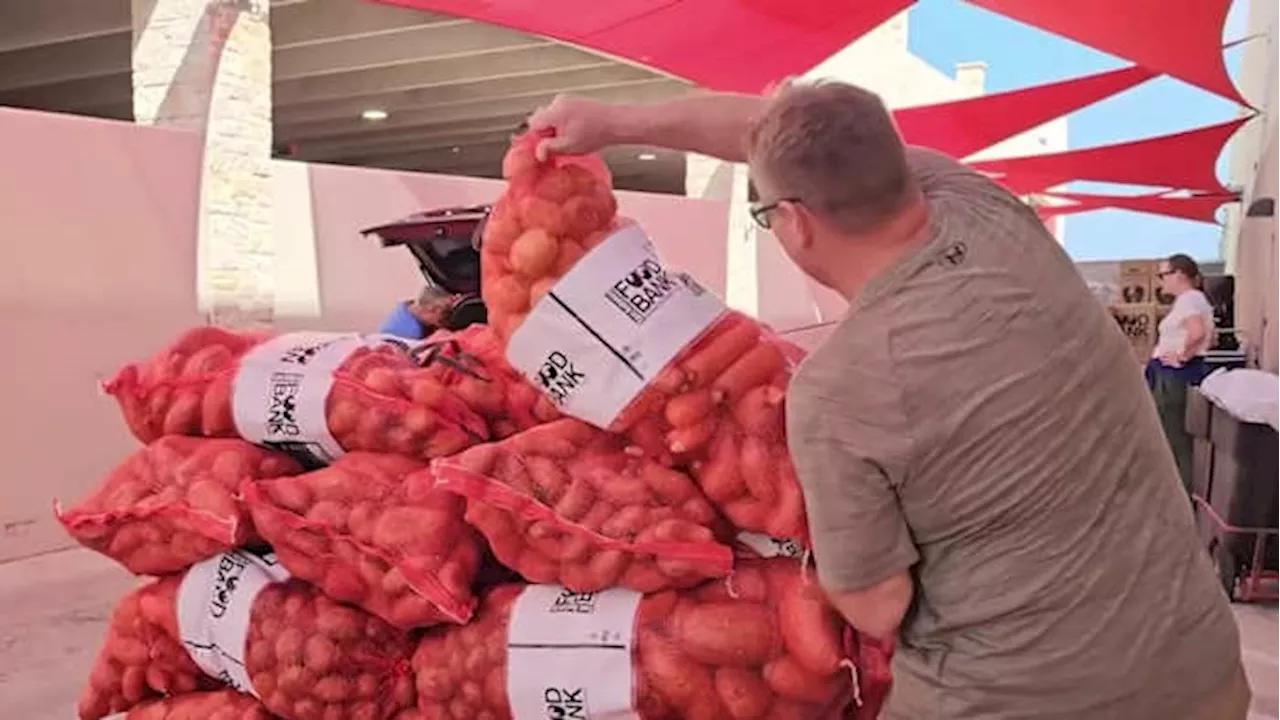Local food assistance organizations are gearing up for a significant increase in demand as the federal government shutdown continues, now entering its second month. With the suspension of SNAP and WIC benefits, which support vulnerable families, the impact on the community is expected to be profound. In Franklin County, approximately 170,000 residents rely on SNAP benefits each month, with thousands more dependent on WIC for essential nutrition.
Mike Hochron, Senior Vice President of Communications and Public Affairs at the Mid-Ohio Food Collective, highlighted the widespread effects: “When we think about who is impacted by this, it’s in every community. It’s our neighbors. It’s our family.” Despite the challenges posed by the government shutdown, Hochron reassured that the organization will continue its efforts to meet the community’s needs.
In response to this crisis, the Columbus City Council has approved an emergency allocation of $25,000 to assist the food collective’s initiatives. Council President Shannon Hardin emphasized the urgency of taking action, stating, “This is a choice that the federal government is making—to not feed folks. If that’s their decision, I think Columbus will make the opposite choice.” He called upon the community to unite in support, encouraging residents to contribute food and resources to local relief efforts.
Hardin further explained that for many families, food security hinges on the availability of SNAP benefits. “For those families, their meals come from those food stamps or from SNAP benefits that they’re entitled to,” he noted. The funding serves as a rallying point for the community, reinforcing the message that local action can provide vital support when federal assistance is lacking.
The potential ramifications of the SNAP suspension are considerable. Hardin noted, “For every meal that we distribute, SNAP accounts for nine meals.” Without a swift resolution, many families could face severe food insecurity. Ohio Governor Mike DeWine’s office indicated that while the state is exploring options to assist, its limited control over the SNAP payment system restricts its capacity to intervene effectively.
“This need will exceed what our food bank and our network of partners can provide,” Hochron added, expressing concern over the rising demand. He encouraged community members to donate canned goods and other non-perishable items to churches and local food banks as a means of support.
The situation underscores a critical moment for community solidarity as local organizations mobilize to fill the gaps left by federal support. With the government shutdown showing no signs of resolution, the collective effort from residents and local leaders will be essential in ensuring that those in need continue to receive the food assistance they require.
As the shutdown persists, organizations like the Mid-Ohio Food Collective highlight the importance of community involvement. “We can do something to take care of our neighbors, in big ways and in small ways,” said Hardin. The call to action is clear: as federal assistance falters, local support becomes more crucial than ever.







